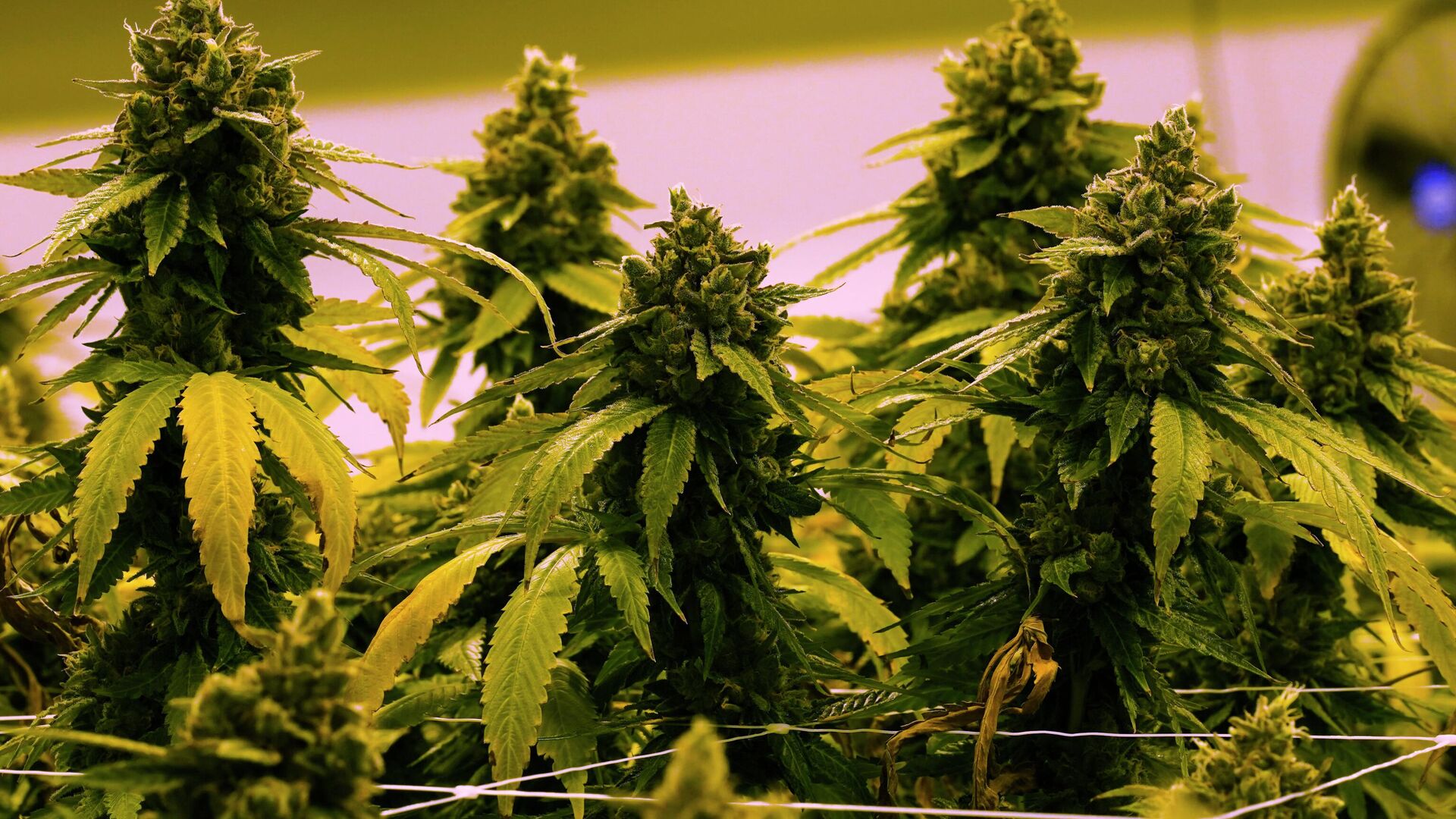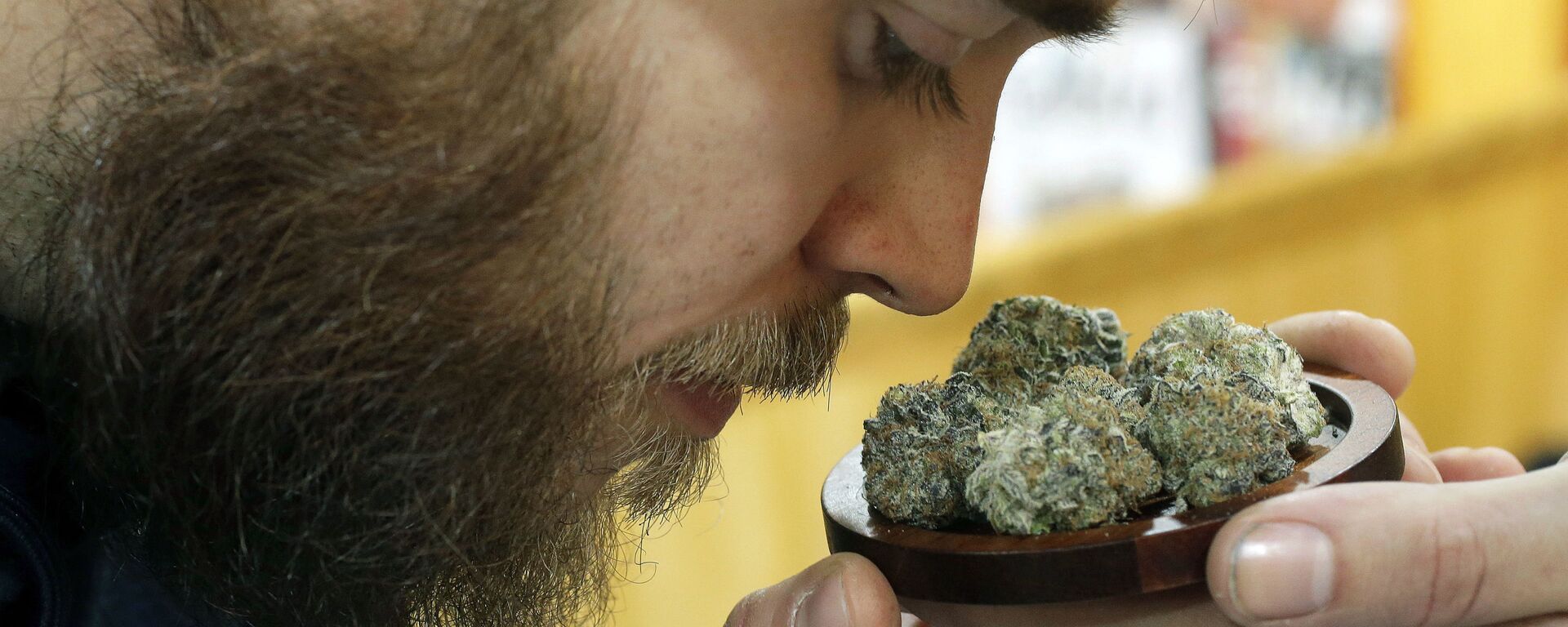Biden Announces Pardon of Thousands of Federal Convictions for Marijuana Possession

© AP Photo / Steve Helber
Subscribe
Recreational marijuana is legal in 19 states and Washington, DC. Five additional states will be voting on the issue in November.
President Biden announced in a statement that he is pardoning “thousands” of federal convictions for simple marijuana possession.
“Sending people to prison for possessing marijuana has upended too many lives and incarcerated people for conduct that many states no longer prohibit,” the statement reads. “And while white and Black and brown people use marijuana at similar rates, Black and brown people have been arrested, prosecuted, and convicted at disproportionate rates.”
The statement, released Thursday, says the Biden administration is taking three actions to address the issue. First, he is pardoning “all prior Federal offenses of simple possession of marijuana.” This would apply not only to people currently incarcerated for marijuana possession, but also those with prior convictions who may be denied employment based on their criminal record.
Second, the Biden administration is urging all state governors to do the same for state convictions of marijuana possession. “Just as no one should be in a Federal prison solely due to the possession of marijuana, no one should be in a local jail or state prison for that reason, either.”
It is not known how many state governors will follow Biden’s urging to pardon state marijuana offenses. At press time, three governors have responded publicly to Biden’s decision, including New Mexico Governor Michelle Lujan Grisham, who noted that her state has already expunged 155,000 convictions for marijuana possession.
This year, New Mexico identified over 155,000 outdated cannabis charges that qualify to be expunged—helping people and families across the state. This is just one way New Mexico’s cannabis rollout was one of the best, and most just, in the country.
— Michelle Lujan Grisham (@Michelle4NM) October 6, 2022
Pennsylvanian Governor Tom Wolf stated that he does not have unilateral pardon authority in his state, but is “doing everything I can to right the wrongs of the failed war on drugs.” Meanwhile, Colorado Governor Jared Polis commended the president’s decision to “follow Colorado’s lead.”
According to White House Correspondent Jacqui Heinrich, the pardons will also apply to those convicted for marijuana possession in Washington, DC. She notes that there are no inmates currently in federal prison for simple marijuana possession, but that the clemency will remove barriers to convicted individuals for housing, education, and employment opportunities.
Finally, President Biden is also directing Secretary of Health and Human Services Xavier Becerra and Attorney General Merrick B. Garland to review how marijuana is classified under the Controlled Substance Act. Currently, marijuana is considered a Schedule I drug, meaning it is considered to have a high potential for abuse and has no accepted medical uses. That marijuana is a Schedule I drug, the same classification for heroin, LSD, and above drugs like cocaine, fentanyl, and methamphetamine, has long been a matter of contention for marijuana advocates.
The statement notes that limitations on trafficking, marketing, and underage sales will stay in place.
“Too many lives have been upended because of our failed approach to marijuana,” the statement concludes. “It's time that we right these wrongs.”


